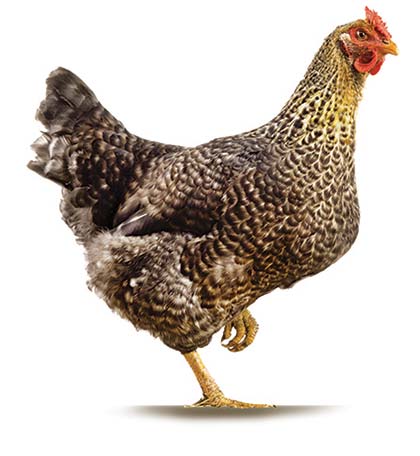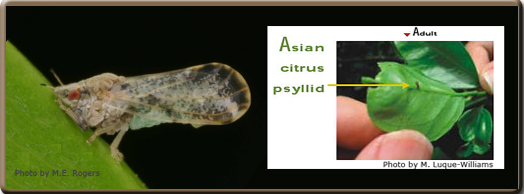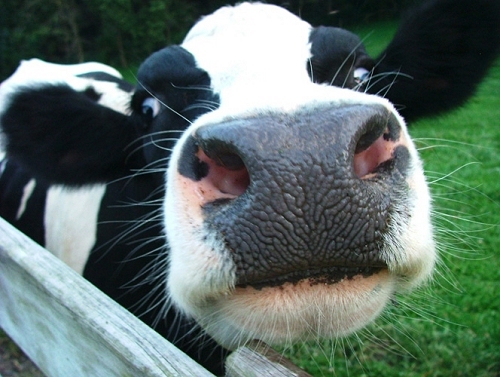California Chickens at Increased Risk for Severe Bird Flu Strain
UC Davis experts are urging backyard chicken enthusiasts and commercial poultry owners to practice strong biosecurity measures to prevent contact with wild birds, due to highly pathogenic strains of avian influenza or “bird flu” recently detected in migratory waterfowl in British Columbia, Washington, Oregon, and Butte County, California.
The current detected strains, H5N2 and H5N8, are not a risk to human health and have not been found in commercial poultry in the United States. However, commercial poultry flocks in British Columbia and backyard flocks in Washington and Oregon have been affected.
Avian influenza — commonly called “bird flu” — is a disease found in a wide variety of domesticated and wild birds. Once introduced into an area, infection can spread through bird-to-bird contact or through contact with contaminated clothing, shoes, hands, feed, water or equipment. Because waterfowl are reservoirs for avian influenza strains that can be fatal to domestic poultry (yet often show little to no signs in waterfowl), backyard and commercial chickens raised near areas commonly used by migrating waterfowl are at risk of transmission.
“Due to normal waterfowl migration along the Pacific Flyway, during the winter there are approximately eight times the number of waterfowl in California than what we will see three months from now,” said Maurice Pitesky, a poultry specialist with the UC Davis School of Veterinary Medicine. “There are lots of birds that winter and establish roosting and feeding habitat in California wetlands and agricultural crops. If you are a poultry owner — either backyard or commercial — and live in proximity to waterfowl and their habitat, your birds are at risk.”
Owners of backyard chickens who observe illness or increased mortality in their birds should call their veterinarian or the California Department of Food Agriculture sick bird hotline at (866) 922-2473.
The California Animal Health and Food Safety Laboratory System includes four diagnostic labs in Davis, Turlock, Tulare and San Bernardino. The labs encourage veterinarians and owners of backyard chickens to submit sick or recently dead birds for necropsy (postmortem) examination. The exam is free of charge for California backyard flock owners of fewer than 1,000 birds (chicken, turkey, waterfowl and squabs). For more information, contact (530) 752-8700 or visit the CAFHS website.
Reduce the risk of bird flu
To reduce the risk of avian influenza transmission, chickens should be kept separate from wild birds and monitored for signs of illness or increased mortality. The CDFA also urges owners to take the following necessary and crucial precautions:
- If you have a pond or body of water that can attract waterfowl to or near your facility, consider draining if feasible.
- Provide housing to confine domestic poultry and/or enclose an exercise area with netting.
- Avoid use of water that comes from sources where waterfowl may congregate during migration.
- Ideally, owners of poultry should try to avoid waterfowl hunting during migration. Otherwise, ensure clothing, footwear, vehicles, etc. used during hunts are laundered and/or disinfected.
- Permit only essential workers and vehicles on premises and provide disposable coveralls, boots and head coverings for visitors.
- Clean and disinfect vehicles and equipment entering or leaving the premises.
- Control movement associated with the disposal of mortality, litter and manure.
Additional resources
Information on good biosecurity and hygiene precautions to keep backyard flocks healthy can be found at:
- UC Cooperative Extension: Backyard Poultry Resources
- USDA Animal and Plant Health Inspection Service
- California Department of Food and Agriculture Avian Health Program
Reports of dead, wild birds can be directed to the Wildlife Investigations Lab at (916) 358-2790. There is also a Web application for submission.
CAHFS at the UC Davis School of Veterinary Medicine
The California Animal Health and Food Safety Laboratory System is the backbone of California’s warning system helping to protect the health of the state’s livestock and poultry. Operated through the UC Davis School of Veterinary Medicine, CAHFS provides appropriate and timely diagnostic support to safeguard the health of California’s dairy, livestock and poultry industries and to protect the public health from animal disease.
(Photo credit: UC Davis)











